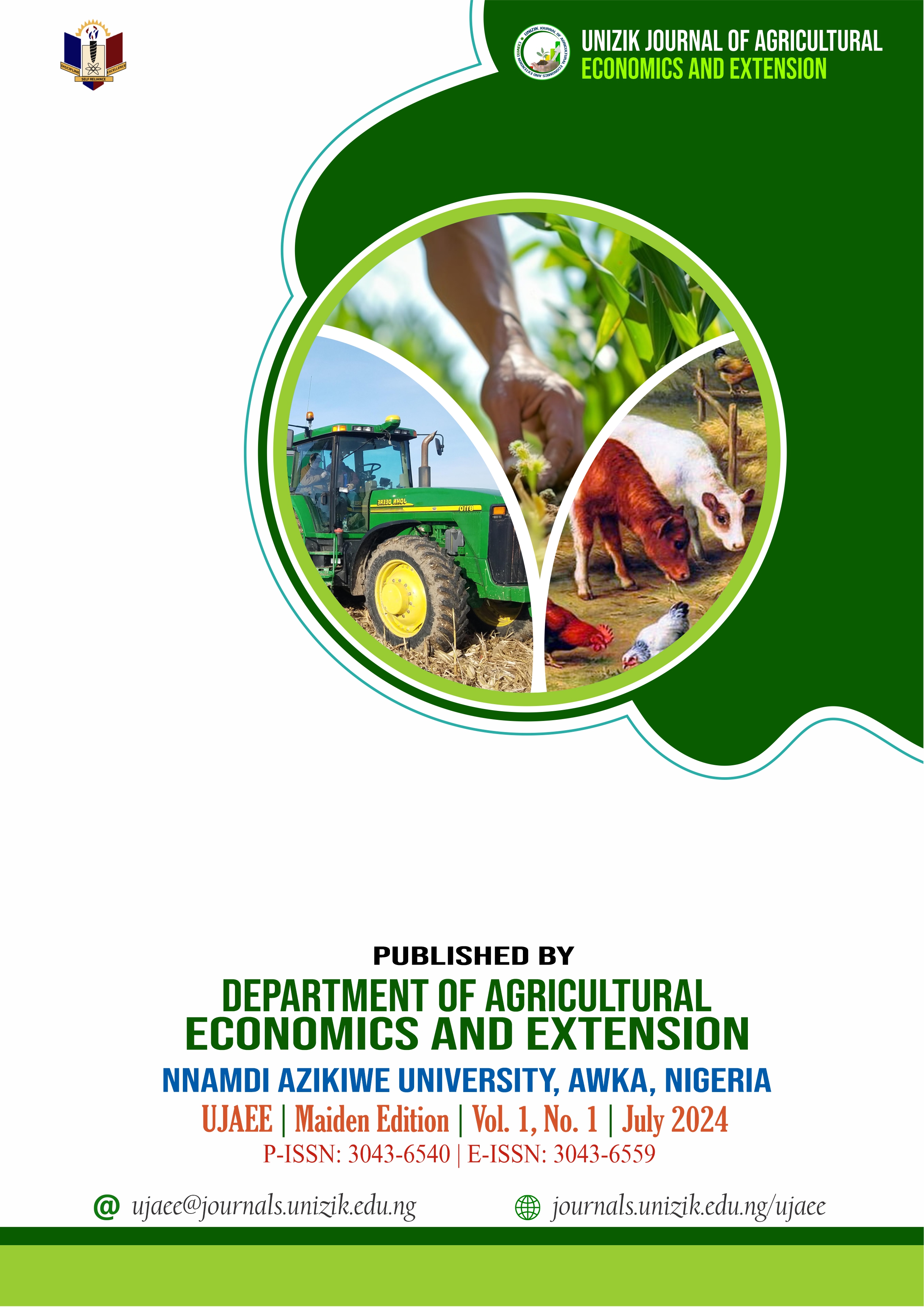Effect of Time Allocation on the Poverty Status of Rural Women in Ogun State, Nigeria
Keywords:
Ogun State, Poverty status, Probit model, Time allocation, WomenAbstract
The imbalance in time allocation on productive activities contributes to higher vulnerability to poverty among rural women in Nigeria. This study examined the effect of time allocation on the poverty status of rural women in Ogun State, Nigeria. Multistage sampling technique was used to select 120 rural women from the study area. Primary data was collected with the aid of a semi structured questionnaire complemented with an interview guide. Descriptive statistics, FGT poverty index and probit regression model were the analytical tools used for data analysis. Analysis revealed that majority (96.7%) of the rural women were within their productive age, (79.2%) of them had low level of education, (65.0%) were married with a mean household size of 4 persons. Findings also revealed that rural women spent less productive time (5.49 hours per day) on income generating activities compared to time spent on unpaid family work (7.51 hours per day). Furthermore, analysis on poverty status of the rural women indicates that most (58.9%) of the rural women sampled in the study area were poor with the poverty incidence being 0.589700. Factors such as time spent on farming activities (p<0.1) and non-farming activities (p<0.05), time spent on household chores (p<0.1) and other socio-economic factors such as education (p<0.01), income (p<0.1) and household size (p<0.05) significantly influenced the poverty status of the rural women. Therefore, the study recommends that government initiatives, programme and policies should provide increased access and usage of labour-saving technologies for rural women in order to reduce their workload on house chores thereby giving them more time to engage in productive activities in order to alleviate their poverty status.
Downloads
Published
Issue
Section
License
Copyright (c) 2024 UNIZIK Journal of Agricultural Economics and Extension

This work is licensed under a Creative Commons Attribution-NonCommercial-NoDerivatives 4.0 International License.




